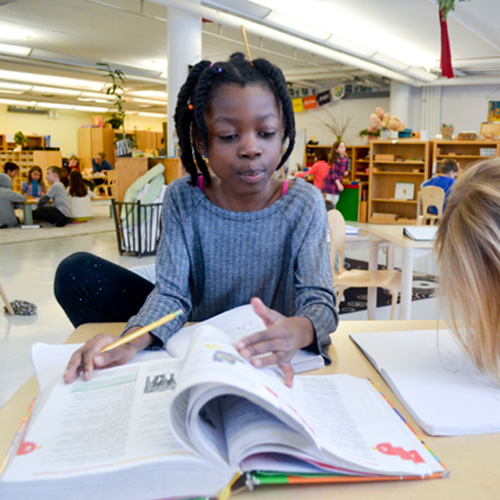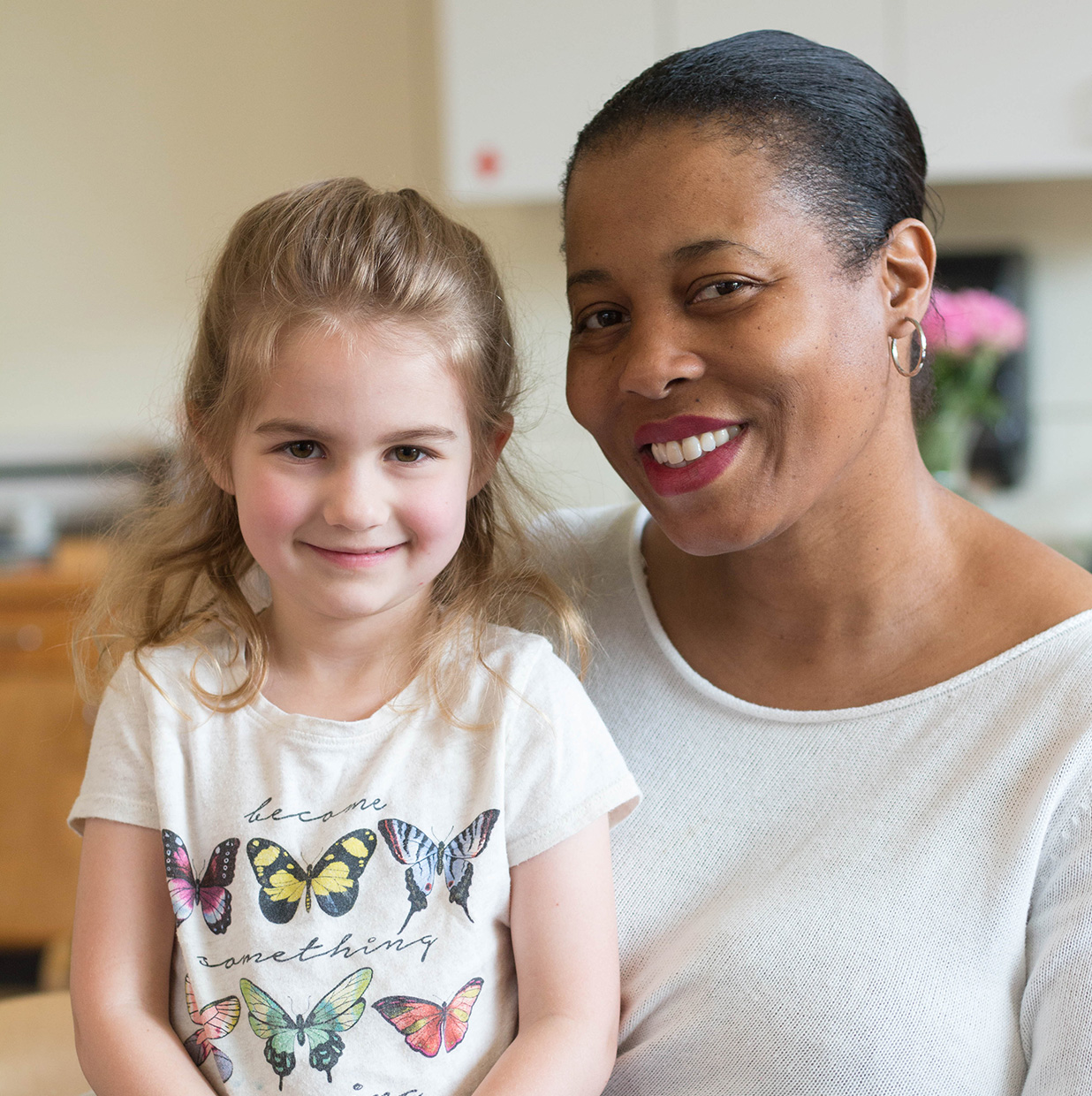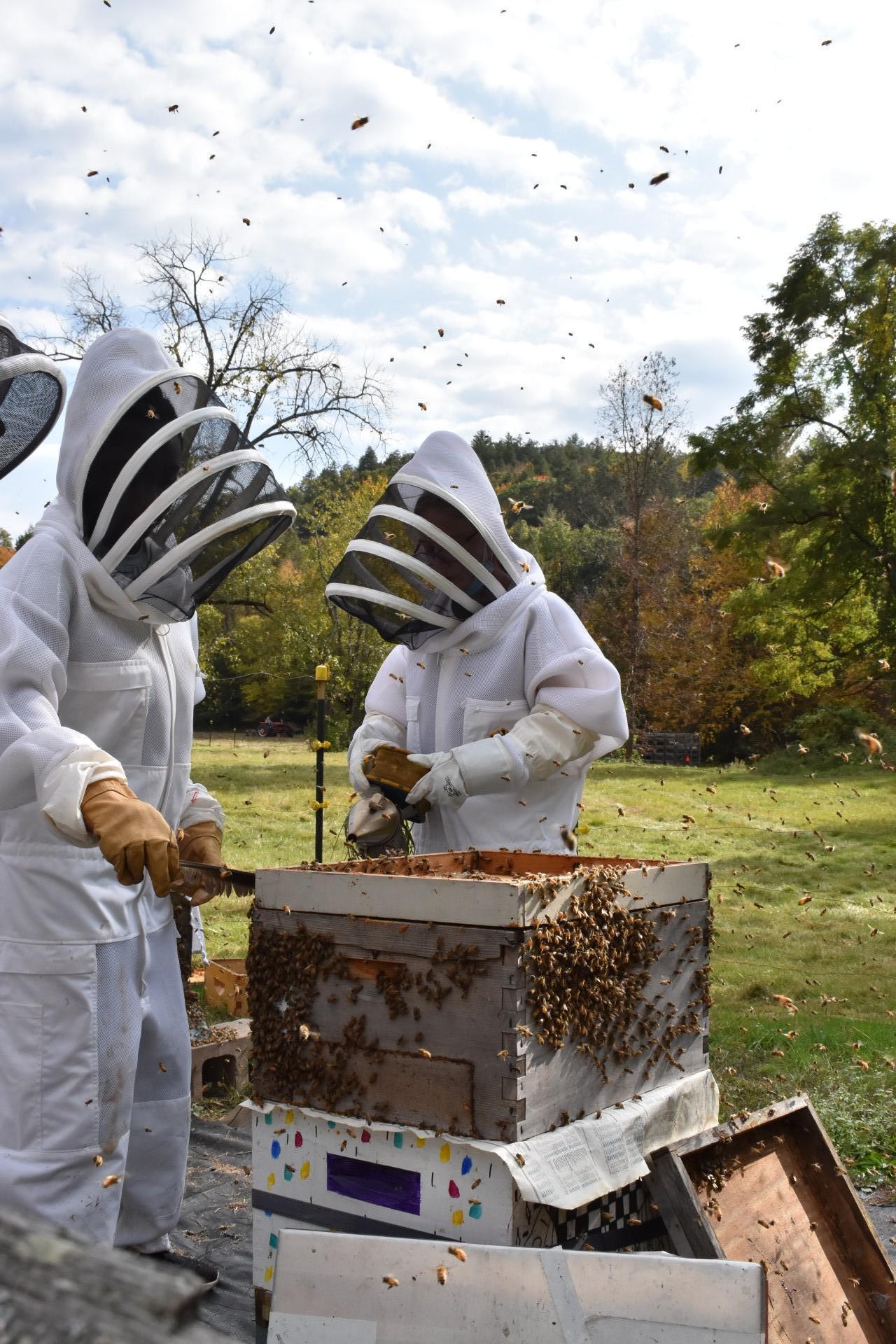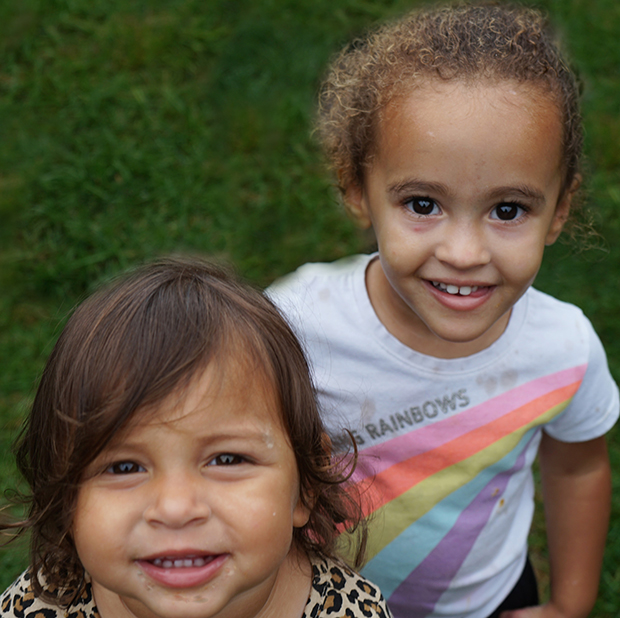Interaction. Optimism. Compassion. Community.
These are the hallmarks of the Primary years at MSGH, when children become increasingly capable and responsible members of their community.
.jpg?v=1658857999510)
Primary Program
MSGH’s Primary classrooms are beautiful, nurturing learning environments designed to respond to the most universal, natural drives and tendencies of three to six-year-old children, including their:
- ability to absorb customs, language and knowledge directly from their environment;
- desire to learn by doing, moving, touching, manipulating and exploring;
- need for order and routine;
- drive to master and perfect the movements of their bodies;
- quest for independence;
- fascination with the customs of their culture;
- need to learn from concrete experience first before learning in the abstract.
Individualized Learning
Most parents are surprised by the depth and breadth of learning that occurs in our Primary classrooms. In this rich setting, Primary students explore and master the classroom’s many materials and subject areas with active, caring, individualized guidance from their Association Montessori Internationale (AMI)-trained teacher. Learning in a Montessori classroom is at once self-directed and carefully supported. The teacher presents each child with material and activities that directly appeal and respond to his or her level of development and interests; the child, in turn, freely chooses his or her work each day, selecting from the array of engaging materials previously presented by the teacher. The teacher carefully observes and records the child’s progress, presenting new material as soon as the child is ready. Children typically spend three or four years in our Primary environments.
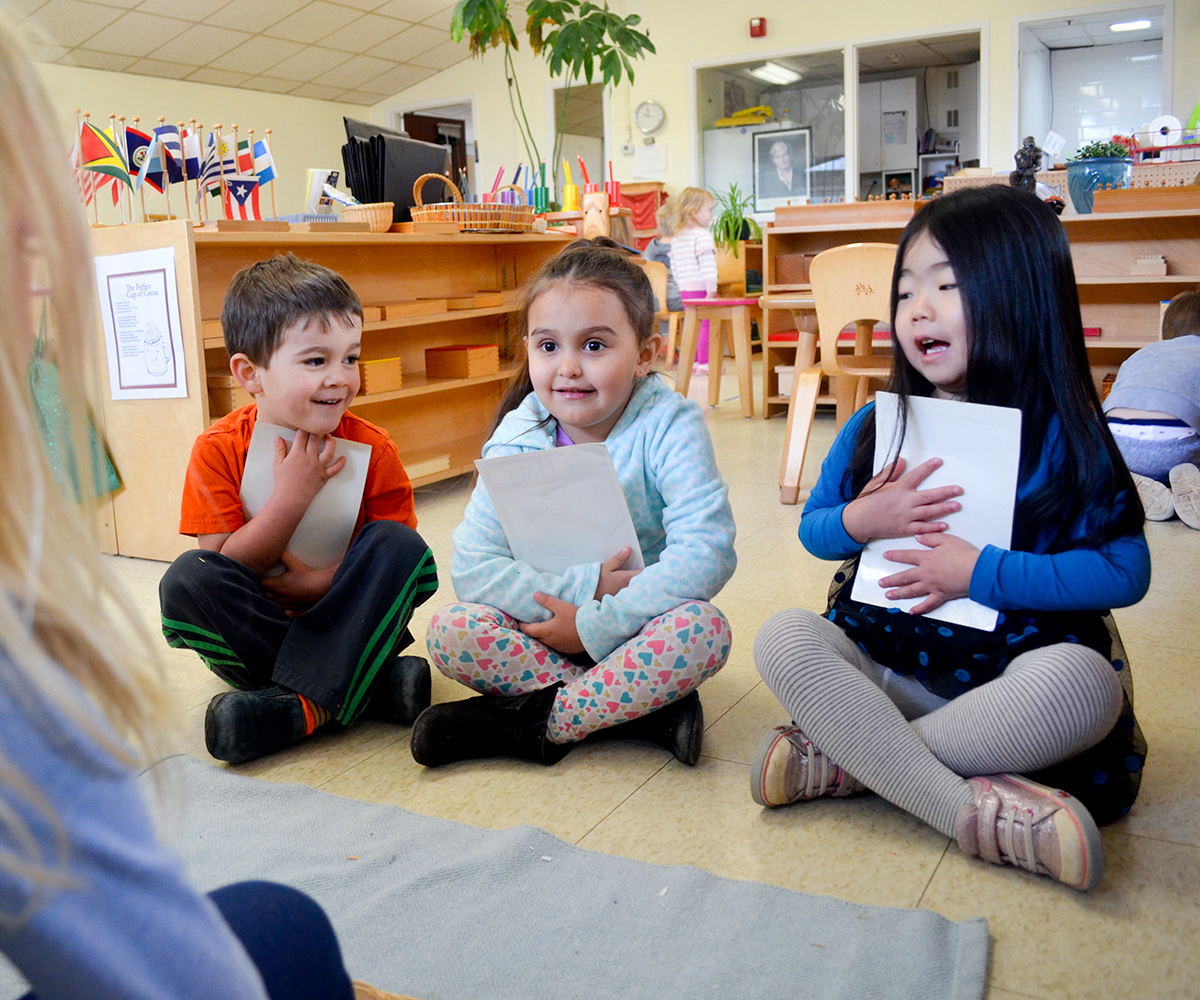
Subject Areas
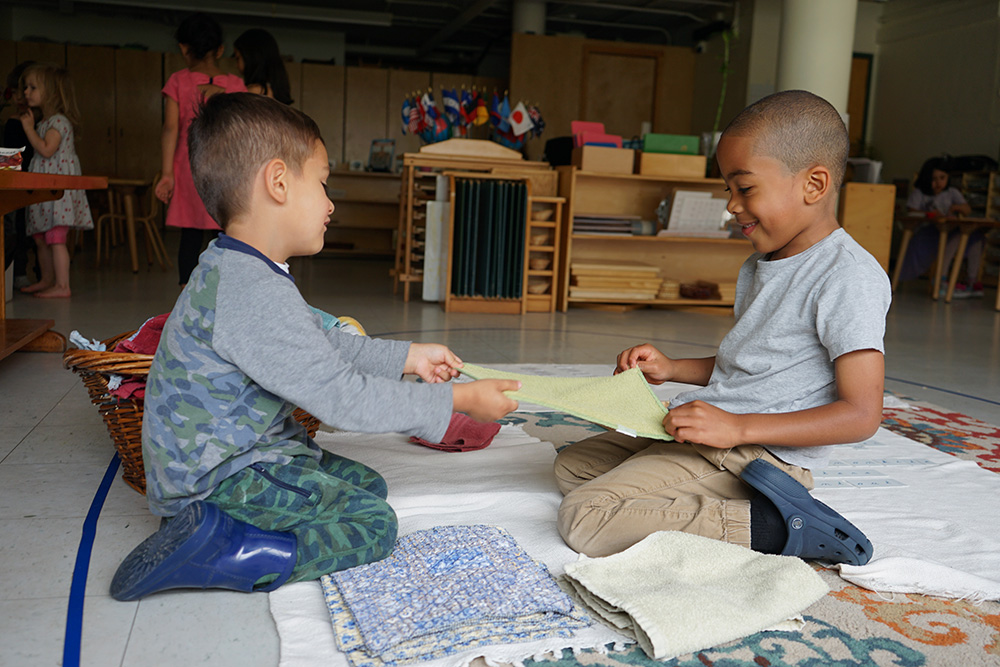
Practical Life
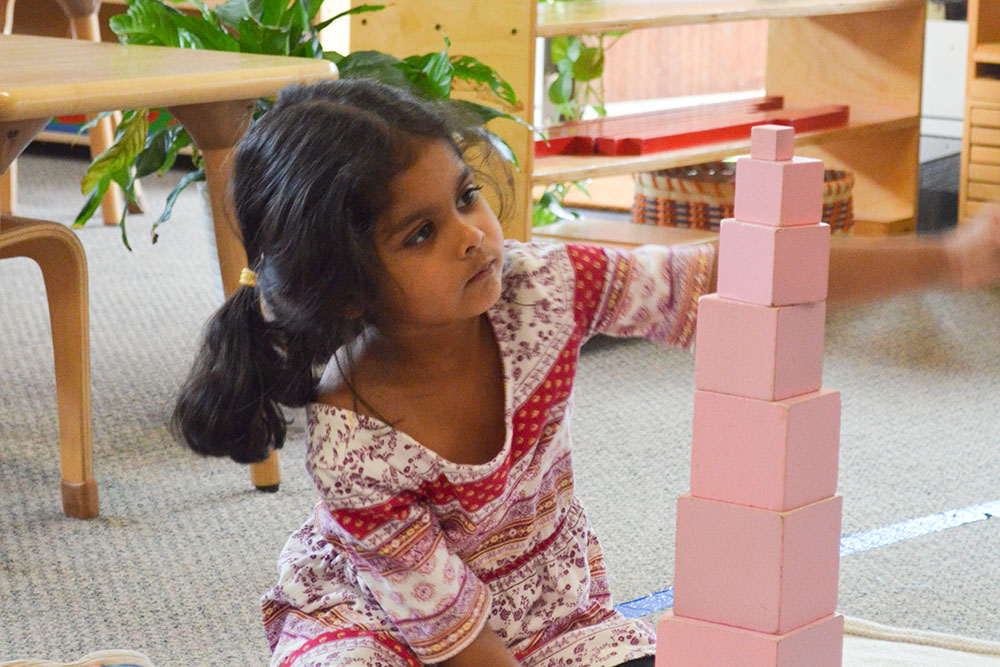
Sensorial
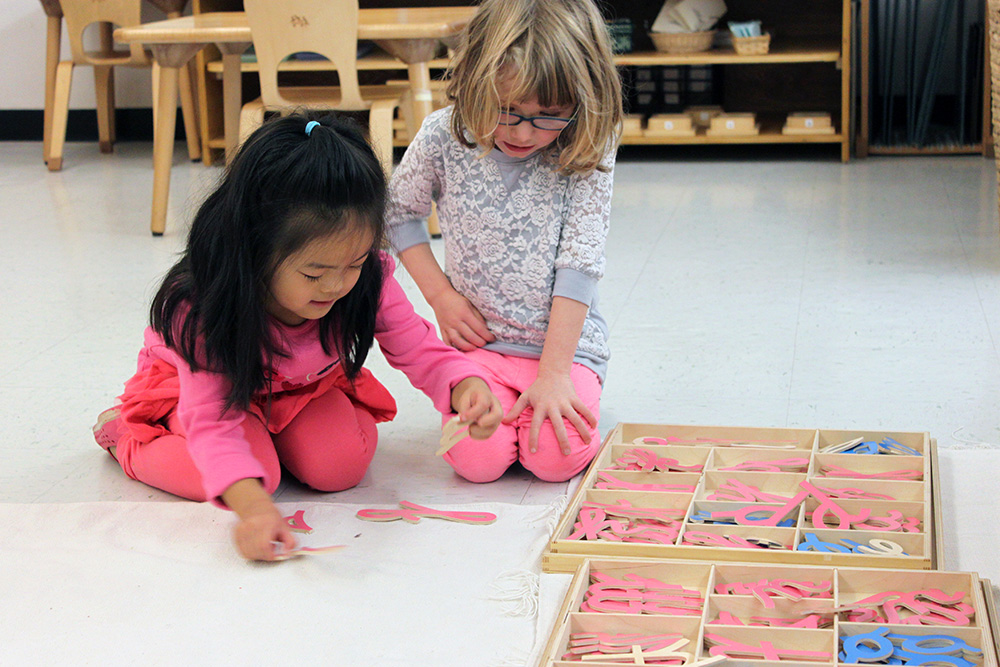
Language
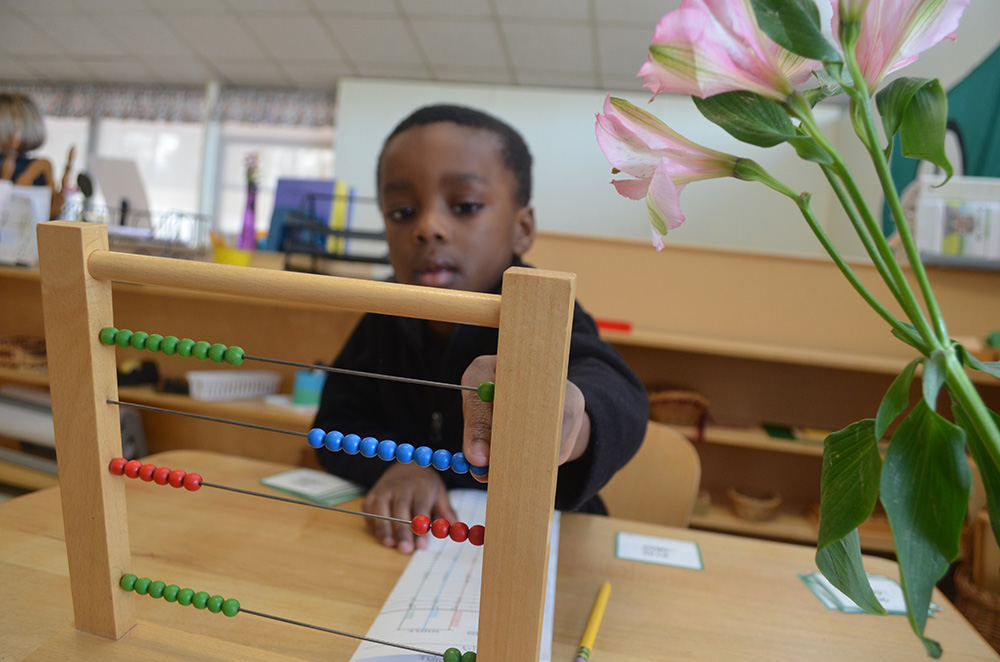
Mathematics
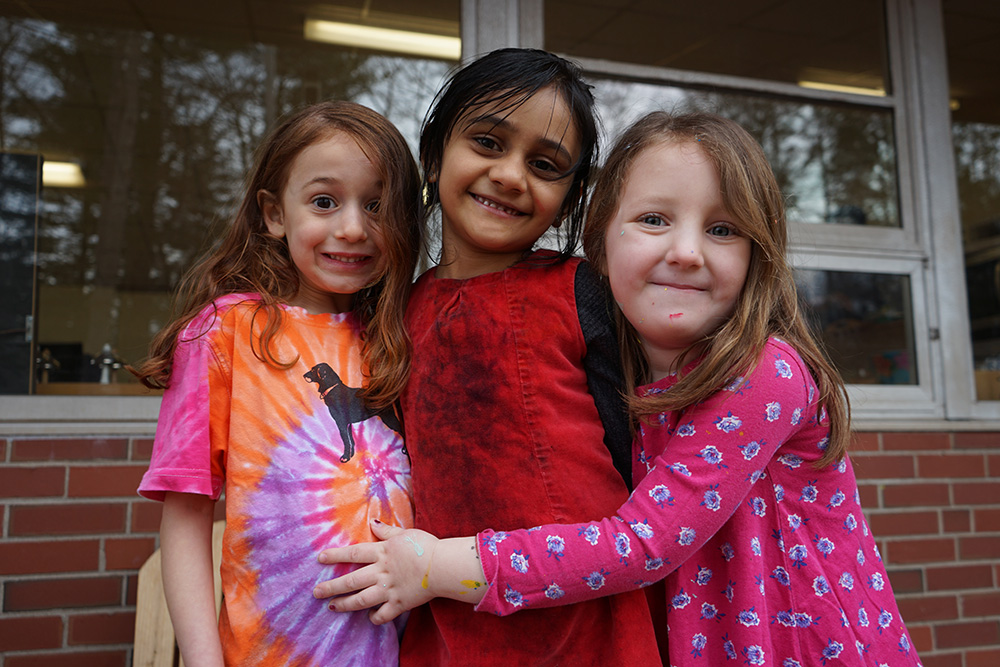
Culture
The classroom is organized into five major subject areas designated as “practical life,” “sensorial,” “language,” “mathematics,” and “culture,” which are filled with hands-on, didactic materials corresponding to each subject. Art, music and Spanish are integrated seamlessly into the curriculum, while voice training, singing, story-telling, work in the classroom garden, and the inspiration of visiting artists continually enhance the children’s learning experience.
Many Ways to Learn
Learning occurs in multiples ways and on multiple levels in the Montessori classroom. For example:
- teachers guide children toward mastery in the subjects areas by presenting them with increasingly challenging and complex materials that are carefully calibrated to each child’s level of readiness and interest;
- children deepen their understanding of concepts and hone their skills by working independently with the materials;
- children inspire and teach themselves by observing older, more skilled children;
- older children consolidate their knowledge by mentoring and teaching younger children;
- essential life skills are developed as each step toward mastery requires deeper powers of concentration, more precise control of movement, greater self-discipline, and increasing independence;
- social skills are developed as the teacher carefully models appropriate behavior and matches each child’s increasing independence with corresponding increasing levels of responsibility for taking care of him or herself, for helping others, and for taking care of the classroom environment;
- small victories are celebrated - “I did it all by myself!” - planting the seeds for a lifelong love of learning.
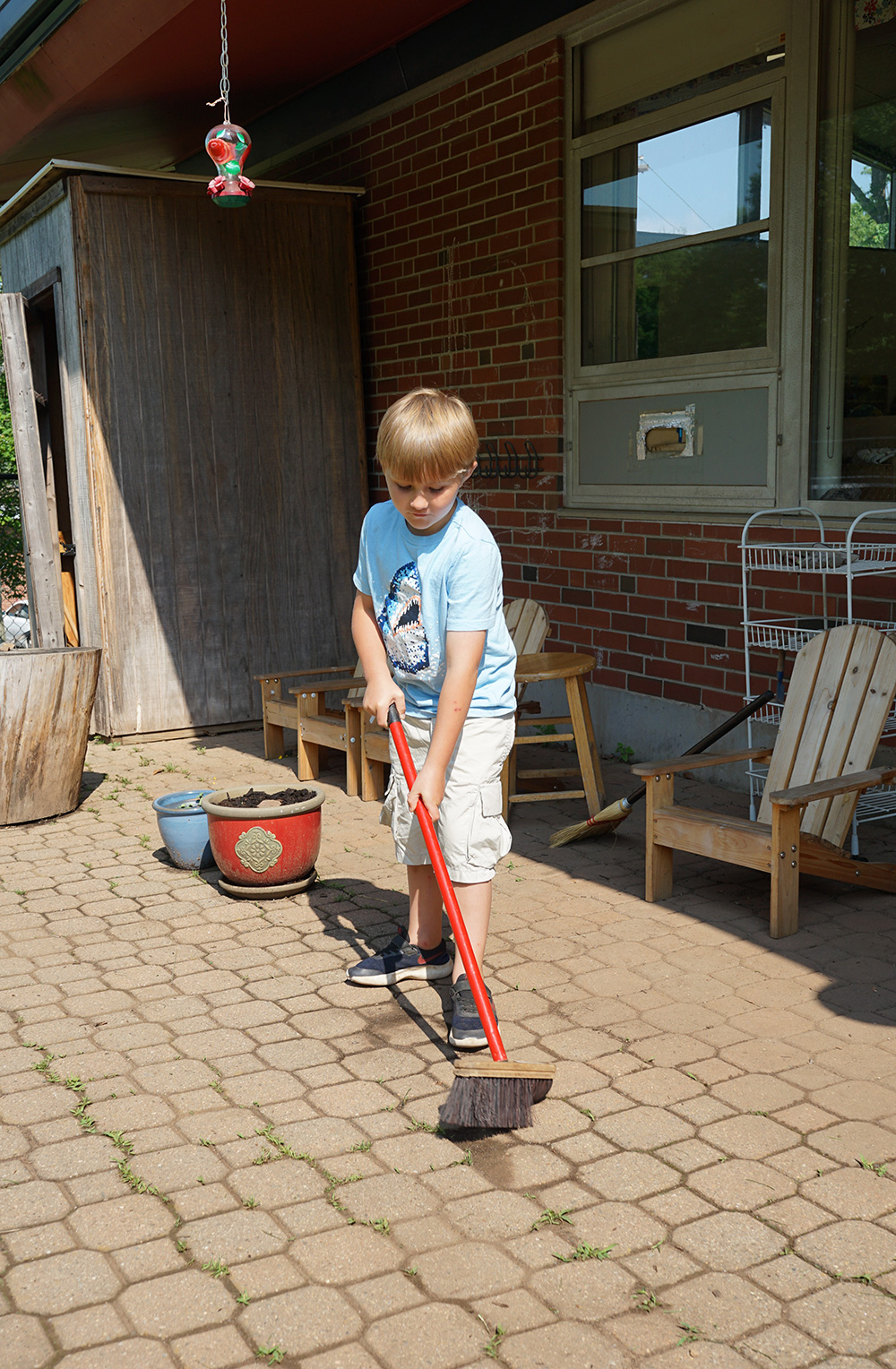
Helpful Primary Articles
For primary parenting resources, click below.
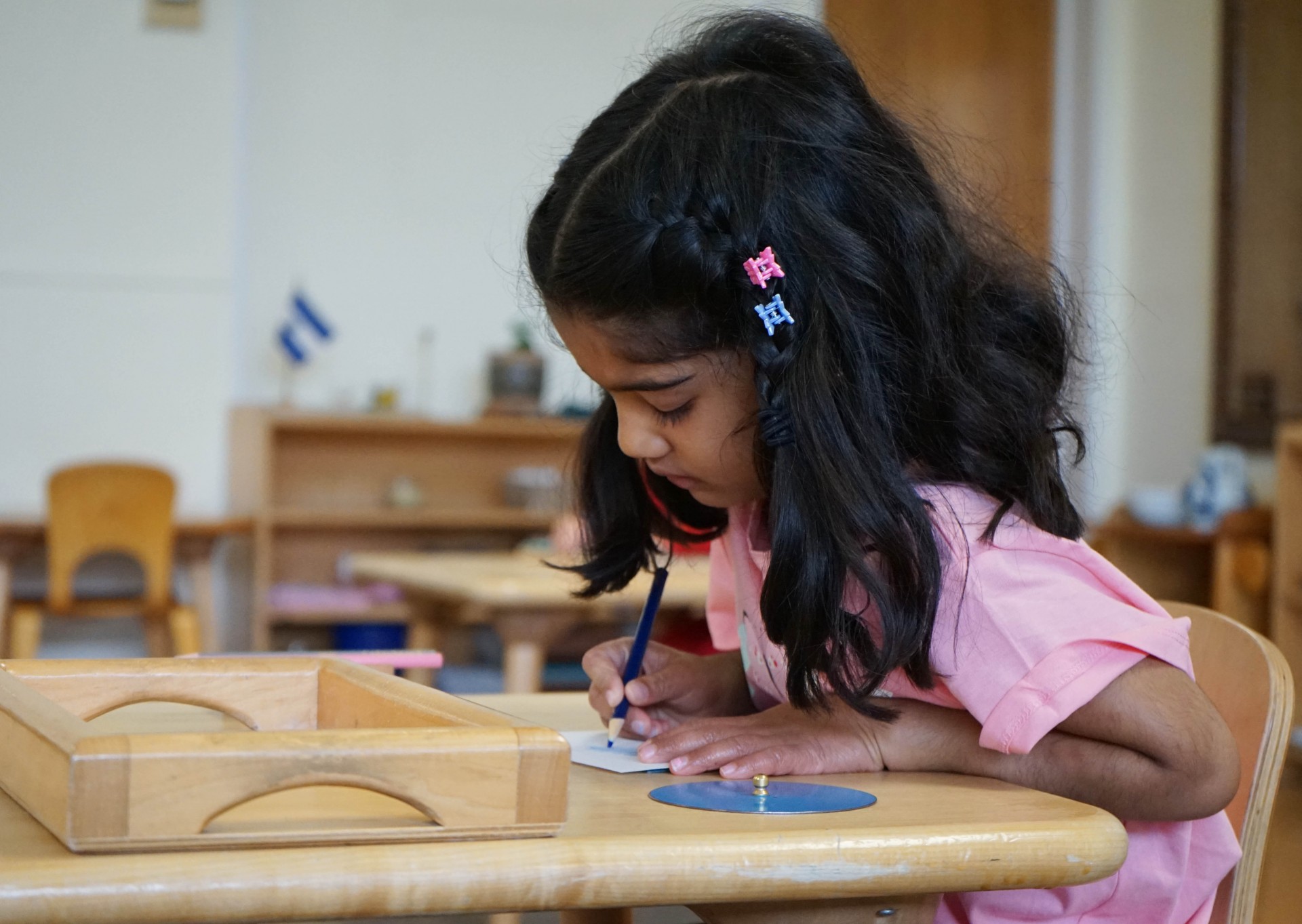
BUILDING RESILIENCE IN OUR CHILDREN
Children are known to “be resilient.” But resiliency, or the ability to overcome hardship or stress, isn’t coincidental. It’s a skill that’s introduced and practiced. If we want our children to show resiliency in the face of a challenge, we need them to practice it when they’re comfortable.
MSGH Blog
For a closer look inside the classrooms, click here!
Parent Observation
Parents of prospective students are encouraged to experience a working Montessori classroom for themselves by planning a visit during the school year. Visiting parents receive a full tour of the school and observe the classroom during the morning work cycle while the children are immersed in learning activities.
Program Details
Teachers: Primary teachers augment their undergraduate- or graduate-level experience with a diploma earned at an Association Montessori Internationale (AMI) Training Center. Each classroom is also supported by a Teacher’s Assistant.
Classroom Composition: MSGH has four Primary classrooms, all of which are carefully balanced by age, gender, cultural background, and children’s maturity and activity levels.
Half-Day, Full-Day and All-Day Programs: MSGH’s Half-Day Primary program runs from 8:30 to 12:00. The program includes snack and ends prior to lunchtime. The Full-Day program runs from 8:30 to 3:00, and the All-Day program runs from 8:30 to 5:30; Full-Day and All-Day programs also include snack.
Early-Morning Care: An early-morning care program is available from 7:30 to 8:10.
Transition to the MSGH Elementary Program: Children enrolling in the MSGH Elementary Program transition from Primary to Elementary when they are developmentally ready. Children move at approximately 6 years-of-age and may transition at any point in the academic year.
